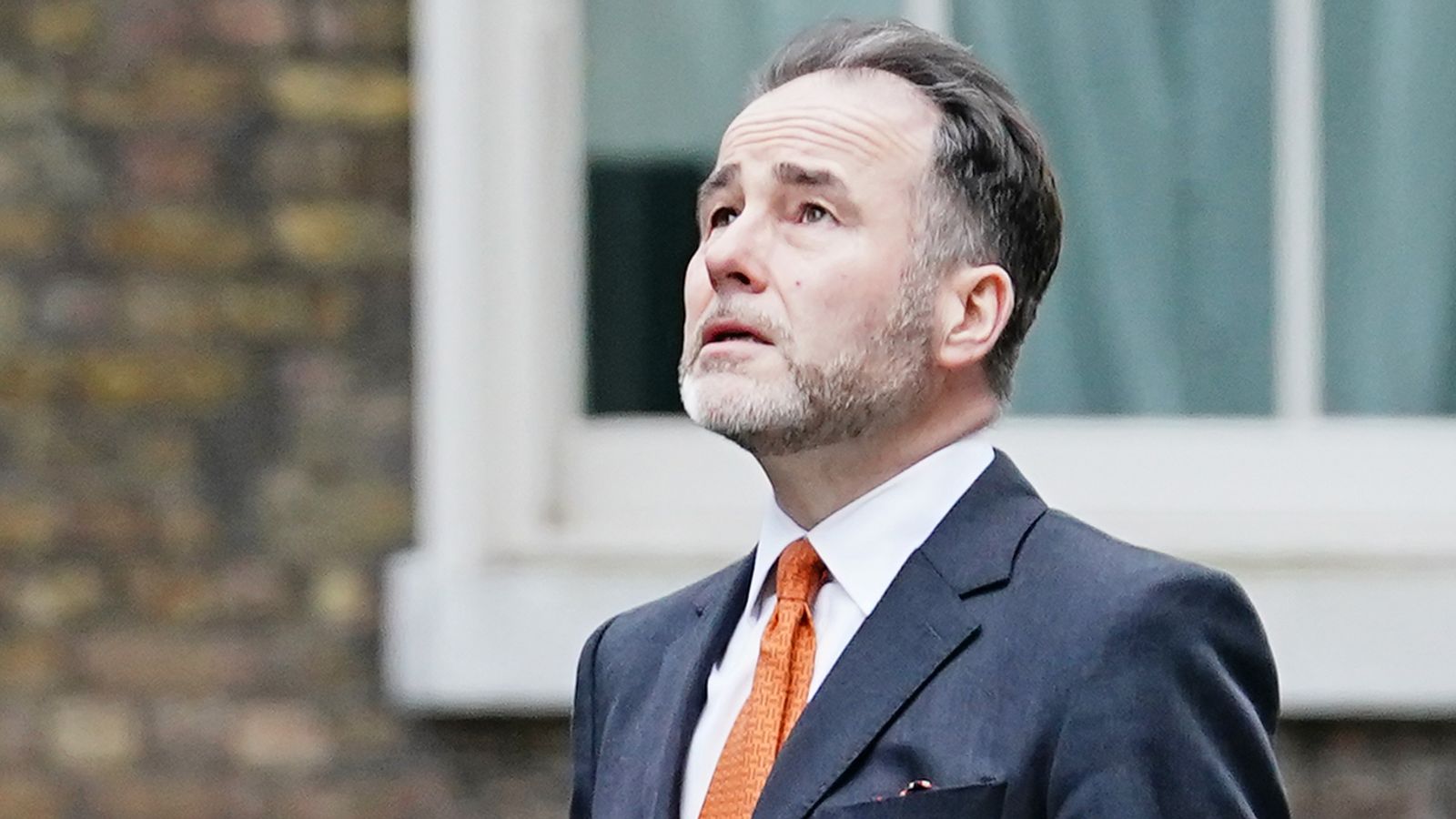The prime minister, back on home soil on Monday and back on familiar ground too, emerged from Number 10 to confront another scandal engulfing this government – this time over his decision to appoint Chris Pincher as deputy chief whip in February despite widespread concerns over his alleged conduct.
Mr Johnson is now facing questions over what he knew and when, after the government last week suspended the 52-year-old as a Tory MP after an official complaint was made over his alleged drunken groping.
Many Conservative MPs are quietly fuming over the handling of the entire affair, from Number 10 initially resisting withdrawing the whip from Mr Pincher after he resigned on Thursday night for his drunken and “embarrassing” behaviour, only to suspend it 24 hours later after a formal complaint was lodged over his alleged groping of two men at an event at the Carlton Club on Wednesday.
On top of that, Number 10 insisted for three days that the prime minister didn’t know of any allegations of misconduct against Mr Pincher before that complaint was made last week, only to admit on Monday that Mr Johnson was aware of “reports and speculation” about the behaviour of Mr Pincher, while insisting that there was no reason to block his appointment given that these were “unsubstantiated allegations”.
Politics Hub: Tory sleaze ‘infinitely worse’ than Major era
He is not the only one who resides in Number 10 to have voiced concerns.
I’ve seen correspondence that shows Carrie Johnson openly questioned Mr Pincher’s suitability as a whip as far back as 2017 when the prime minister’s wife – then Ms Symonds – was director of communications at Conservative Campaign Headquarters (CCHQ).
Carrie Johnson openly questioned ChrisPincher’s suitability as whip in 2017, Sky News understands
Boris Johnson knew of reports about disgraced MP Chris Pincher’s conduct when he made him government whip, No 10 confirms
Boris Johnson’s 40 new hospitals pledge faces investigation by spending watchdog
Ms Johnson questioned how Mr Pincher had ever ended up in the whip’s office after he resigned as an assistant whip after claims of unwanted sexual advances from a Tory candidate.
Mr Pincher referred himself to the police and the Conservative Party complaints procedure and was later cleared of wrongdoing.
A Number 10 spokesperson said: “Mrs Johnson is a private individual and has no role in ministerial appointments.”
But what is clear is at the highest level it was known that Mr Pincher had issues and Number 10 is struggling to quell the anger in the party from Mr Johnson’s critics, incredulous that Mr Pincher was promoted to such a powerful position, in charge of MPs’ welfare given his past conduct.
Two Conservative figures, sympathetic to Mr Pincher, told me that he was vulnerable and should have been offered proper support back in 2017.
One former minister told me of their frustration that, instead of being told that he would be barred from promotion or even standing in the next election if he didn’t address these some of the difficulties he was grappling with, he was put back into the whips’ office by Theresa May in 2018.
Mr Pincher is now seeking professional medical help.
For his critics, this is yet more evidence that Mr Johnson is not suited to leading the Conservative party or the country and believe this could mean the prime minister loses more backbench support.
This matters because elections to the executive of the 1922 backbench committee are coming up before recess and Mr Johnson’s foes want to fill those posts with MPs minded to change internal party rules to allow for another confidence vote within a year.
And as the Number 10 grapples with another scandal, Sir Keir Starmer is trying to use this to put clear blue water between himself and the prime minister, telling me in an interview on Monday that the Pincher scandal shows again that this is a PM who “repeatedly makes bad judgment calls”.
Labour is also using the political space created by Mr Johnson’s internal party difficulties to finally grasp the nettle on some difficult policy issues and begin to set out an alternative vision for the UK.
There is an emerging confidence within Labour from the local election results and Wakefield by-election win, and the leader is trying to harness that to finally try to end the enduring toxicity over the party’s position over Brexit, with Sir Keir, the former figurehead of the Remain campaign, planting his flag on Tory turf.
Please use Chrome browser for a more accessible video player
He emphatically ruled out rejoining the EU, the single market, the customs union or freedom of movement in his life three times in an interview with me on Monday.
Sir Keir said he wanted to avoid reopening “divisions of the past” and get on with making Brexit work – a policy that he hopes will not only appeal to those red wall seats but provide him with a vehicle to criticise Mr Johnson’s handling of Brexit given the growing row of trading arrangements in Northern Ireland and lack of a much-lauded post-Brexit US trade deal.
“The mood is shifting,” one senior Labour figure told me. “Starmer has been having to tell activists that things are getting better, now they believe it – there’s a growing confidence within the party.”
But on the Conservative benches, the mood is dire and the PM looking increasingly isolated over the Pincher saga at a time when he can ill-afford to alienate any more MPs or risk the ire of those in cabinet fed up with having to publicly defend him.
And it could get worse still, if one of Mr Pincher’s accusers complains to the police. Mr Johnson could find himself facing another by-election precipitated by Tory sleaze.








